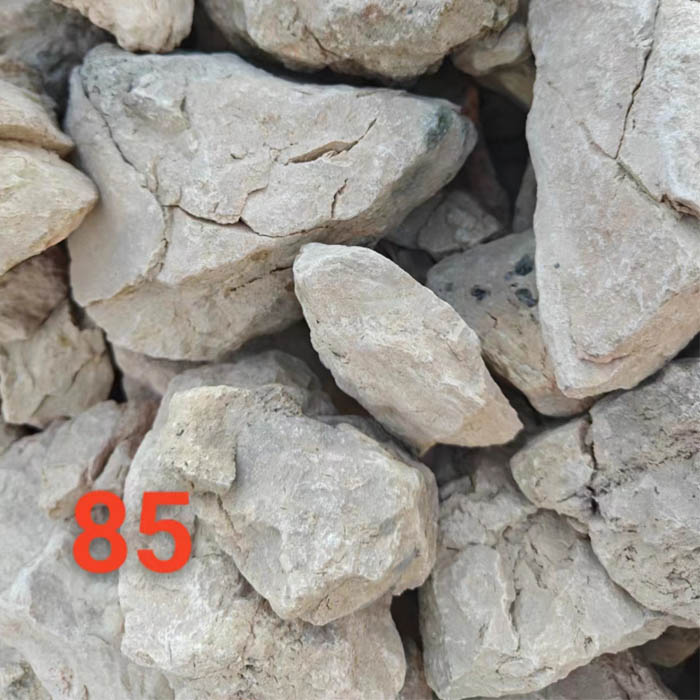Nov . 15, 2024 16:05 Back to list
gardening vermiculite
The Role of Vermiculite in Gardening A Comprehensive Guide
Vermiculite is a lightweight, natural mineral that has been transforming gardening practices for decades. With its unique properties and versatility, it has become a favorite amongst gardeners, landscapers, and horticulturists. In this article, we will explore what vermiculite is, its benefits, and how to incorporate it into your gardening routine.
What is Vermiculite?
Vermiculite is a hydrated magnesium-iron-aluminum silicate mineral that is processed through heating. When heated, it expands to form lightweight, porous particles that resemble small, shiny, golden-brown granules. This expansion process significantly increases its volume, making it an ideal soil amendment for various gardening applications.
Benefits of Using Vermiculite in Gardening
1. Moisture Retention One of the standout features of vermiculite is its ability to retain moisture. When added to soil or potting mixes, it can absorb significant amounts of water and release it slowly, ensuring a steady supply for plant roots. This is particularly beneficial in regions with high temperatures or prolonged dry spells, as it helps to maintain optimal moisture levels.
2. Aeration Vermiculite enhances soil structure by creating air pockets that improve aeration. Good aeration is essential for healthy root development, as it allows for the exchange of gases, enabling roots to access oxygen while expelling carbon dioxide. This is especially important for plants that are sensitive to compacted soil.
3. Nutrient Retention Vermiculite has a property called cation exchange capacity (CEC), which allows it to hold onto essential nutrients. As nutrients dissolve in water, vermiculite captures them, making them available for plants over time. This feature makes it an excellent addition for both garden and container plants, helping to minimize nutrient leaching.
4. pH Neutral Unlike some other soil amendments, vermiculite is pH neutral, which means it won’t affect the acidity or alkalinity of your soil. This makes it suitable for a wide range of plants, from succulent varieties to more acidic-loving species, like blueberries.
gardening vermiculite

5. Sterility Vermiculite is naturally sterile, offering protection against soilborne diseases and pests. When using it in seed starting or propagation, gardeners can feel confident that they are providing a clean medium for root development.
How to Use Vermiculite in Your Garden
Incorporating vermiculite into your gardening routine is relatively simple, and there are several ways to utilize it effectively
- Seed Starting Mix equal parts vermiculite and potting soil to create a lightweight seed starting mix. The moisture retention capabilities will help keep seeds hydrated while allowing for good drainage.
- Potting Mix For container gardening, add 25% vermiculite to your potting mix. This will improve drainage and aeration, promoting healthy root growth.
- Soil Amendment Incorporate vermiculite into your garden bed soil to improve its structure. A ratio of one part vermiculite to three parts soil can enhance water retention and nutrient availability.
- Mulch Layer Spread a thin layer of vermiculite on top of your garden beds as a mulch. This will help suppress weeds, retain moisture, and keep the soil temperature stable.
Conclusion
Vermiculite is a valuable resource for gardeners looking to improve soil health and plant vitality. Its moisture retention, aeration properties, nutrient availability, pH neutrality, and sterility make it an excellent addition to any gardening project. Whether you are an avid gardener or just starting, incorporating vermiculite into your practices can lead to thriving plants and a flourishing garden. So, the next time you are looking to enhance your garden's soil structure, consider vermiculite as a natural, effective solution. Happy gardening!
-
Eco-Friendly Granule Covering Agent | Dust & Caking Control
NewsAug.06,2025
-
Fe-C Composite Pellets for BOF: High-Efficiency & Cost-Saving
NewsAug.05,2025
-
Premium Tundish Covering Agents Exporters | High Purity
NewsAug.04,2025
-
Fe-C Composite Pellets for BOF | Efficient & Economical
NewsAug.03,2025
-
Top Tundish Covering Agent Exporters | Premium Quality Solutions
NewsAug.02,2025
-
First Bauxite Exporters | AI-Optimized Supply
NewsAug.01,2025
